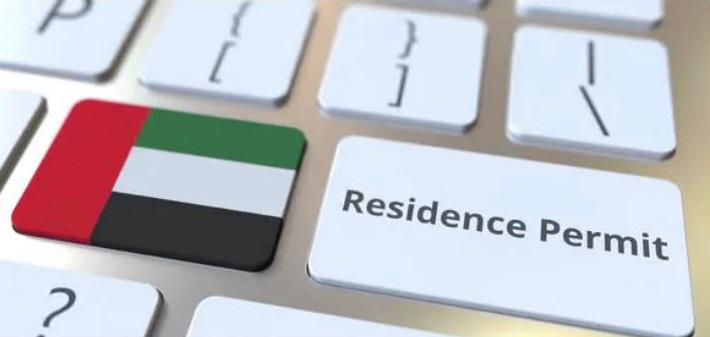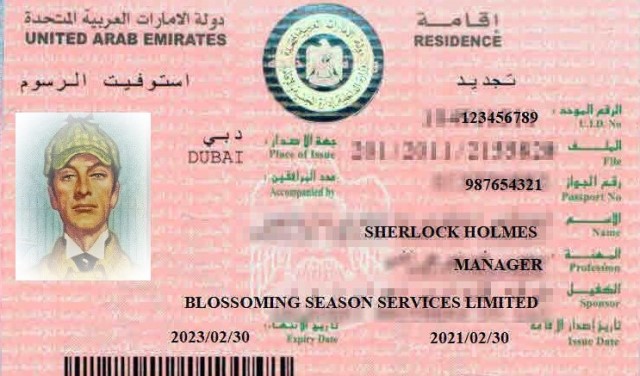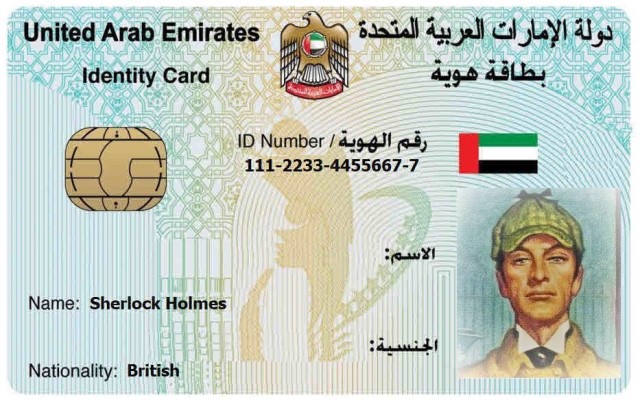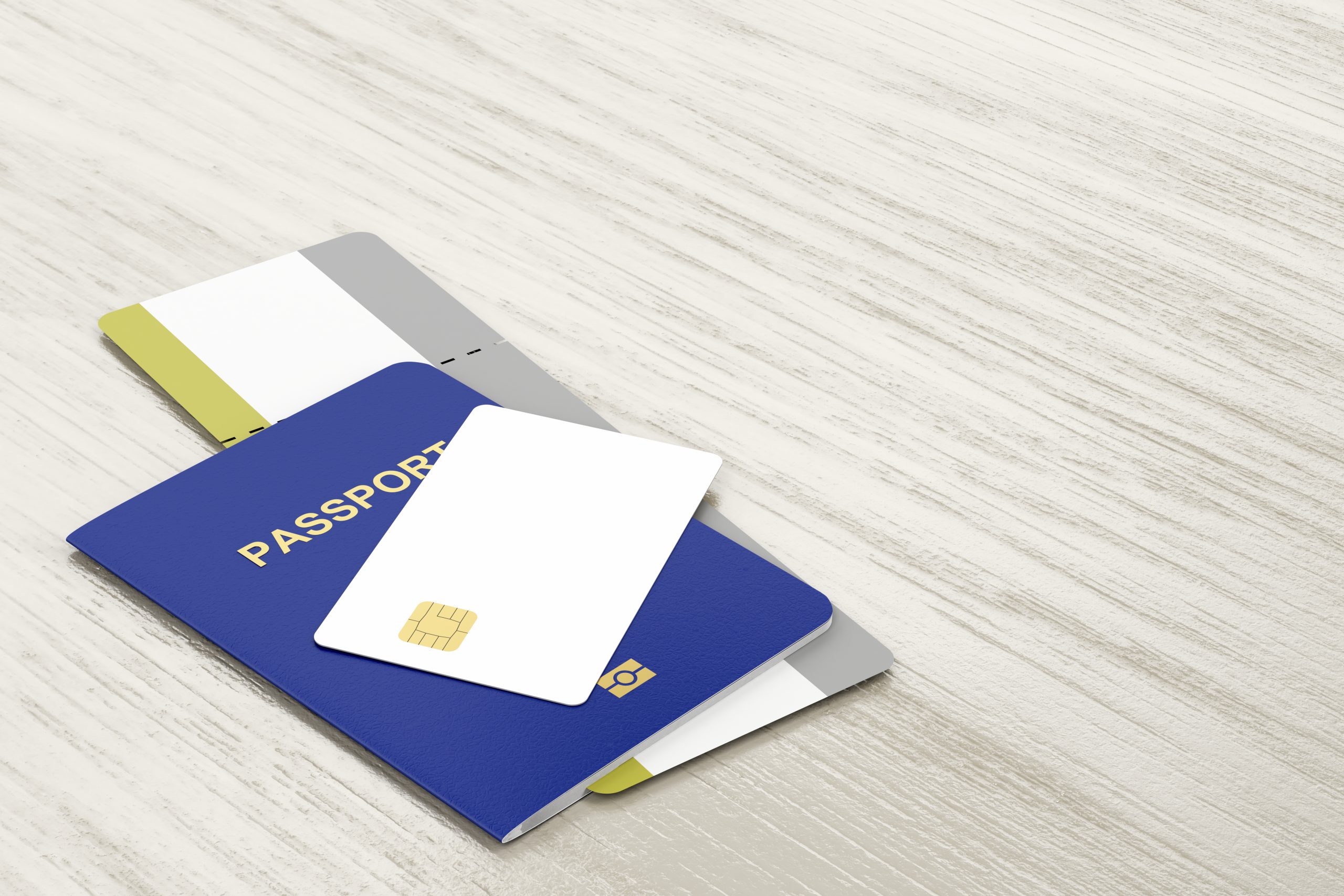UAE RESIDENCE VISA FOR BUSINESS, WORK AND STUDY

Your consultant
RAVAD ZAKHR EDIN
Senior Business Consultant
The fast-growing economy of the UAE, ease of doing business, developed infrastructure, high standard of living, no personal income tax, a multicultural and safe environment – these are the reasons why the UAE attracts investors and highly qualified specialists from around the world.

What is a residence visa and what advantages does it give?
Expatriates currently make up about 80 – 85% of the UAE’s total population.
A residence visa is a document that is analogous to a residence permit and entitles a foreign citizen to enter and leave the UAE an unlimited number of times, as well as reside in the UAE, during the validity term of the visa. Residence visas are usually issued for a period of 2 years.
The main advantages of a residence visa are that it enables the holder to:
- Do business or work in the country (depending on the category of visa);
- Become a tax resident (subject to additional conditions);
- Open a bank account and take out a loan;
- Rent property under an official contract;
- Access the public healthcare system and obtain health insurance;
- Enrol children in public and private educational institutions;
- Connect to the Internet and mobile services;
- Obtain a driving licence in the UAE.
The holder of a residence permit is not required to reside in the UAE permanently. To maintain a visa, it is necessary to visit the country every six months, and the duration of stay is not prescribed.
What does a residence visa look like?

A visa is glued into the passport and contains the following data:
- UID (Unified Identification Number) – a unique number that is automatically assigned to all individuals crossing the UAE border;
- the emirate that issued the visa;
- immigration file number, consisting of the code of the emirate that issued the visa, the year of issue and the visa number;
- passport number;
- holder’s name;
- if the visa is obtained through a company, position in that company:
✓ an investor visa will specify ‘investor’ (if the company has just one shareholder) or ‘partner’ (if the company has several shareholders); this is an important point to note for applicants who wish to keep the ownership of the company confidential;
✓ a work visa will specify, for example, ‘manager’, ‘sales specialist’, ‘marketing specialist’ and others;
- sponsor’s name. For work visas and investor visas issued through a company, the sponsor is the company itself (employer). Subject to certain conditions, a holder of a residence visa can act as a sponsor for visas of his family members.
What is an Emirates ID and why do you need it?

The holder of a residence visa must also apply for and receive an Emirates ID, the identity card of a UAE resident. The card is issued by the Federal Authority for Identity and Citizenship and contains personal information, including the cardholder’s photo and biometric data (fingerprints). Its validity period coincides with the validity period of the residence visa.
An Emirates ID is an identification document that a resident must carry with them at all times.
The card is required both to access government services and services provided by some commercial organizations, for example, by a telecommunications company to connect mobile services and the Internet, banks, utilities, etc. The card can also be used to pass through e-Gates (Automatic Border Control Points) at Dubai Airport instead of regular passport control.
How will a residence visa affect your tax residence?
Having a residence visa does not automatically make a person a tax resident of the UAE. A residence visa is a mandatory, but not sufficient condition of becoming a tax resident.
The holder of a residence visa is not required to permanently reside in the UAE, it is enough to visit the country at least once every 6 months.
To obtain a tax residence certificate, you must, in addition to copies of your passport, residence visa and ID card, provide a certificate from the UAE migration authority stating the number of days spent in the country, a tenancy agreement, a certificate of income and a bank statement for the last 6 months.
Who is eligible for a residence visa?
A residence visa can be issued to:
- investor – owner of an UAE onshore company;
- employee hired by a UAE onshore company;
- owner of UAE real estate;
- investor – investment in a commercial fund;
- investor – investment in an investment fund (deposit);
- investor – Tax return investor;
- student studying at a UAE university.
The first three categories of applicants can also apply for residence visas for their family members.
What are the general requirements for obtaining a residence visa?
An applicant must:
- pass a security check;
- not have diseases such as HIV or tuberculosis;
Everyone over 18 years of age must undergo a medical examination in the UAE before applying for a residence visa: a blood test and chest X-ray.
- apply for an Emirates ID.
How to get an investor residence visa (for doing business)?
In most cases, the best option of obtaining a residence visa is registering your own onshore company.
Requirements for the company:
- the company must be an onshore one, offshore companies do not give you the right to apply for residence visas;
the best option is to register a company in one of the UAE free zones;
- the company will need to be renewed every year;
- the company must have its own or rented office space.
Regardless of where the company is registered and where the residence visa is issued, one may live in any emirate, therefore it is possible to choose a free zone for registering a company based on the total costs, the prestige of the emirate and other factors.
How to get work residence visas for foreign employees?
An onshore company (for example, a company registered in a free zone) can also obtain visas for its foreign employees.
The number of residence visas (both investor and work visas) that can be issued by a single company depends on the chosen business package and the size of the office.
In the case of termination of employment, the company must cancel the employee’s residence visa for work. The employee is given 1 month after cancellation of the visa to apply for a new one (for example, find a new employer) or leave the country.
Some professions and positions may require the applicant’s appropriate qualification which must be confirmed by a diploma or certificate.
Depending on the free zone, there may be additional requirements for a residence visa for work, such as:
- getting a health insurance policy;
- making a deposit equal to a monthly salary;
- making a deposit equal to the cost of a return ticket.
In both cases, deposits are refunded upon visa cancellation.
Additional requirements may vary or may be completely absent in some free zones.
What is the procedure, required documents, and time for obtaining an investor visa and a work visa?
| Company registration |
from 1 day to 3 weeks depending on the free zone |
| Opening an Establishment Card (immigration file) |
3 – 5 business days |
| E-channel registration |
1 – 3 business days |
| Obtaining a residence visa |
|
| Obtaining an Entry Permit (permission to enter the country) |
4 – 5 business days |
| The applicant has 60 days to enter the UAE to complete the procedure. If the applicant is already in the UAE at the time the Entry Permit is issued, it is necessary to change the status of the visa |
1 – 3 business days |
| The applicant’s visit to the UAE: undergoing a medical examinationproviding biometric datasubmitting the passport for visa stamping collecting the passport with a stamped visa |
5 – 7 business days |
The table shows an average time frame. Some free zones, under certain procedures, can issue a visa on an expedited basis for an additional fee.
Documents required for an investor visa and work visa:
- Company documents: commercial licence and immigration file.
- For the applicant:
- Passport;
- Photo of a ‘passport’ size against a white background;
- Entry Permit stamped upon arrival;
- Record of the medical examination;
- Application for an ID card stamped by the Authority for Identity and Citizenship.
Documents additionally required for a work visa:
- Employment agreement;
- Copy of diploma (normally not required for managerial positions or sales and marketing specialists);
A copy of the diploma must be prepared in the country of origin: it must be notarized, with a notarized translation into English or Arabic, after which it is legalized at the relevant ministry / ministries and then at the UAE consulate.
How to get a residence visa for buying real estate?
UAE real estate owners are eligible for 2 kinds of residence visas: 2-year visa for owners of real estate worth over AED 750.000 and 10-year visa (“golden” visa) for owners of real estate worth over AED 2.000.000.

|
Value of real estate |
over AED 750.000 (~ USD 204.200) |
over AED 2.000.000 (~ USD 545.000) |
|
Visa term |
2 years |
10 years |
|
Requirements for real estate |
must be ready-to-move-in |
not only ready-to-move-in properties, but also off-plan properties from the approved developers |
|
both residential and commercial property is permitted |
both residential and commercial property is permitted |
|
|
applicants are allowed to own several properties with a total value of more than AED 2.000.000 |
||
|
must be fully owned by the investor |
|
|
|
|
applicants are allowed to purchase properties using loans from certain local banks |
|
|
|
it is necessary to retain the investment during the entire validity period of the visa; in the case of sale of the real estate, a residence visa is subject to cancellation |
|
|
|
|
|
|
investors over 60 years of age need additional permission to obtain a residence visa |
investors over 60 years of age need additional permission to obtain a residence visa |
|
|
Main package of documents |
– title deed (an electronic copy); |
– title deed; |
|
Time to obtain |
4 weeks |
2 – 3 weeks |
|
Requirement to visit the country |
at least every 6 months |
no |
How to get a student residence visa?
A student visa is intended for persons over 18 years of age, admitted to or studying at accredited universities and colleges in the UAE.
This visa is issued for 1 year and can be renewed for the same period, subject to the educational institution’s confirmation of continued education.
A student visa can be sponsored by:
- Accredited educational institution – university or college; or
- A student’s parent holding a residence visa.
Parents can only continue to sponsor visas of their sons who have turned 18 if the sons are studying at higher education institutions in the UAE or abroad and the course of study lasts at least 1 year.
Parents can continue to sponsor their daughter’s student visas regardless of their age.
How to get residence visas for family members?
The holder of a residence visa, be it an investor visa, a work visa or a visa for real estate investment, can act as a sponsor for residence visas of his family members:
- Spouse
- Children:
- sons under 18 years of age;
- sons aged between 18 and 21 years only if they are higher education students and the course of study lasts at least 1 year (supporting documents must be provided);
- unmarried daughters;
3. Parents.
Only a man can normally act as a sponsor. A woman’s ability to sponsor visas for family members is restricted: there may be occupational requirements or higher salary requirements than for men.
A sponsor needs to prove that accommodation has been secured, by submitting a tenancy agreement or title deeds and a utility bill.
If the sponsor is a holder of a work visa, he must have a salary of at least AED 4.000 per month or AED 3.000 per month if the accommodation is provided by an employer. Accordingly, a statement of salary and an employment agreement must be provided.
To apply for residence visas for your parents, you will need to make a security deposit and get them health insurance policies. The sponsor’s minimum salary requirements vary by emirate.
How to get a residence visa for investment in a commercial fund?
Foreign investors who invest in public investments are given the golden residence visa, which has a 10-year residency limit but is extendable under the same conditions. The investor capital should be not less than 2 Million AED.
The following documents are required:
- A copy of the passport.
- The trade license with the partners appendix.
- The financial report (audit report) of the establishment or a number of establishments for the last year.
- A certificate from the free zone that includes all the investor’s financial data.
- A bank statement of the establishment for the last (6) six months.
How to get a residence visa for investment in an investment fund (deposit)
Investors who invest in financial deposit of not less than 2.000.000 AED in a bank in the UAE.
The deposit cannot be withdrawn for two years.
The following documents are required:
- A copy of the passport.
- A letter from the bank.
- Proof of residence in the Emirate of Dubai.
How to get a residence visa for Tax return investor
Foreign investor who is a partner in one or several establishments and pays the tax to the government. His contribution to the tax should not be less than 250 thousand AED annually.
The following documents are required:
- A copy of the passport.
- A letter from the Federal Tax Authority.
- A copy of the license and the partners’ annex.
How to renew a residence visa?
A residence visa can be renewed for another period, provided that the grounds on which the visa was issued still exist.
Renewal documents must be submitted before the expiration of the current visa, but not earlier than 1 month prior to the expiry date.
When renewing a residence visa, the applicant will need to take the same steps as during the initial application: undergo a medical examination, apply for a new ID card, submit the passport and documents confirming the reasons for renewing the visa.
The migration authorities allow a person to stay in the country for another 30 days after the expiry of the visa. If the resident does not leave the country after the end of the 30-day grace period and does not renew the residence visa or obtain a new one, a fine will be charged for each subsequent day of stay in the UAE.
How to cancel a residence visa?
The application to cancel a visa is submitted by the sponsor.
If the holder of a residence visa has stayed outside the country for more than 6 months, his/her visa automatically becomes invalid. Still such visa should be formally cancelled.
In what cases can a person be refused a visa?
As other states, the UAE will deny a visa to applicants who have not passed the security check, or have deliberately provided false information, or previously committed serious offences in the country, etc.
Nor will a residence visa be issued if the applicant has tested positive for HIV or has been diagnosed with tuberculosis during the mandatory medical examination.
In addition to the above (generally accepted and quite obvious) reasons, some applications are rejected for ‘technical reasons’. In such cases, once the cause is eliminated, the application can be resubmitted.
If the applicant previously had a residence visa and left the country without duly cancelling it, and the visa became invalid due to his staying outside the country for more than 6 months, the migration authorities may turn down his new application. In this case, it is necessary to first cancel the previous visa.
In some cases, an application may be rejected due to a technical error in the computer system, i.e. for reasons outside the applicant’s control.
As stated above, every person entering the UAE is assigned a unique identification number called UID. Sometimes the system assigns more than one such number to a person who has previously visited the UAE several times, which is discovered after the submission of the application for a residence visa. Fortunately, this technical problem can be quickly resolved, and after re-submission the visa will be issued.



